The year was 1969. Nissan introduced its very first Z car: the Nissan Fairlady Z, also known as the Datsun 240Z when it was imported into the United States. The Bee Gees was a thing then and the goal was simple – to introduce an affordable sports car that’s both efficient and fun-to-drive.
Little did Nissan know, that was the birth of an iconic nameplate, one that was bound to stay alive in several generations, leading to our most recent tester, the Nissan 370Z Nismo.
Within a few days of being lodged in my garage and some sprints within the NCR Plus bubble, I’ve grown quite fond of this two-seater V6 coupe in more ways than one. Not because it’s high-tech nor because it’s the most comfortable car I’ve ever driven (it’s far from those), but it’s all because of its appreciated candor. Read along to know what I mean.
Exterior
For the Z fans, Nissan can’t hide the fact that this generation’s 370Z is sitting on a decade-old platform. Initially born in 2008 for the 2009 model year, then getting a needed update in 2014, the current model that the Philippines got last year wasn’t exactly worthy of being called new in 2021, to be quite honest.
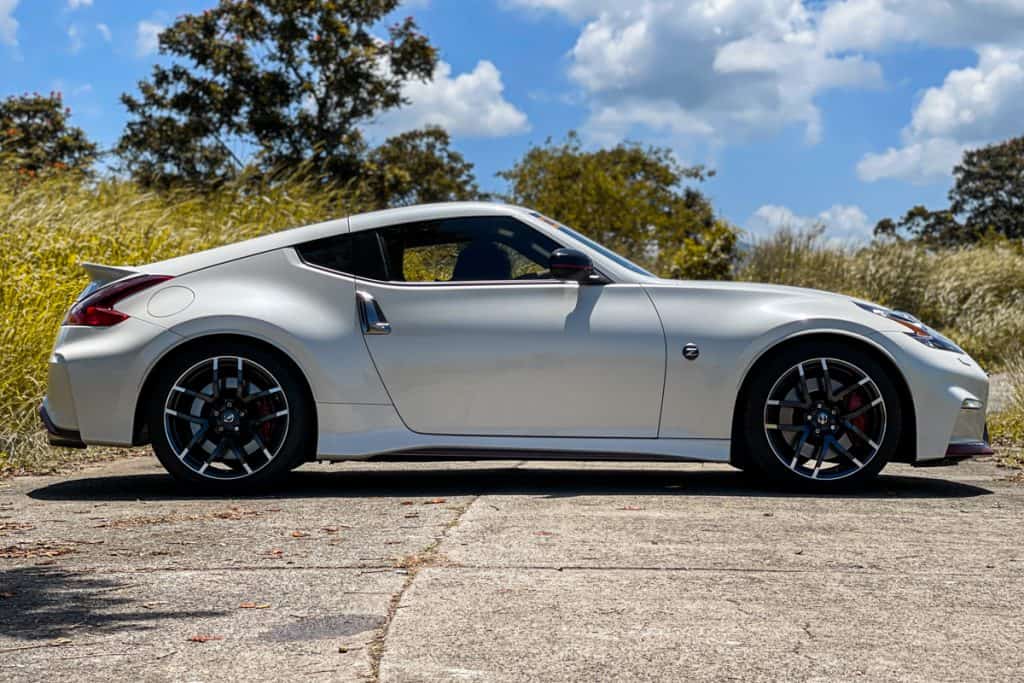
Despite these, the 370Z looks timeless. Beyond the dotted taillights that are five years past due, the whole vehicle styling can still keep up with younger sports cars. Maybe because we’re not used to seeing one on local roads, or the overall design is just that good.
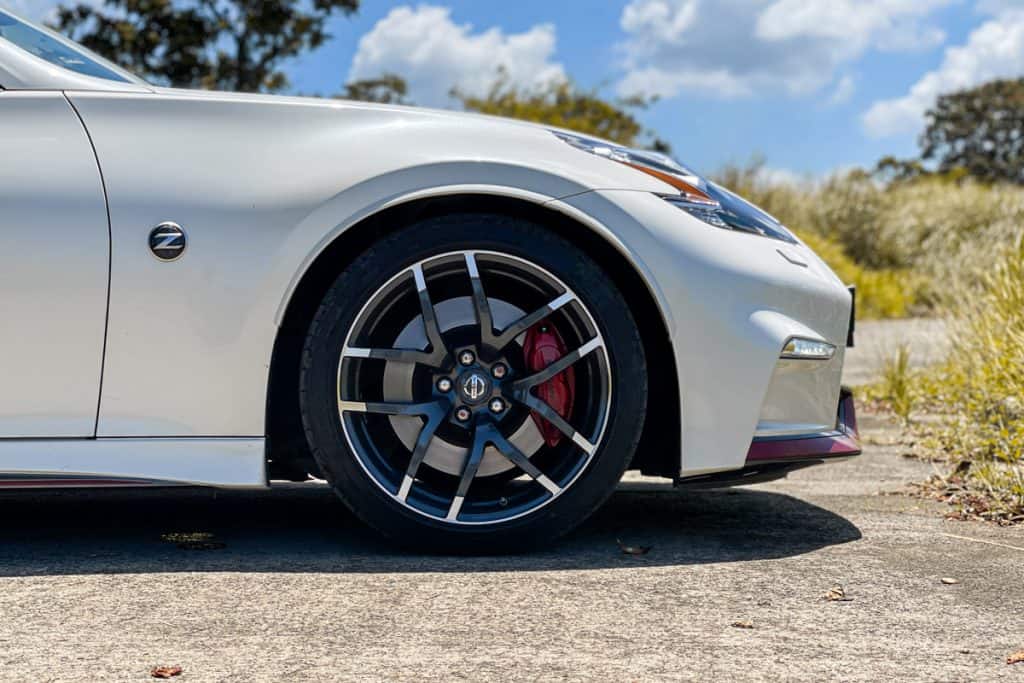
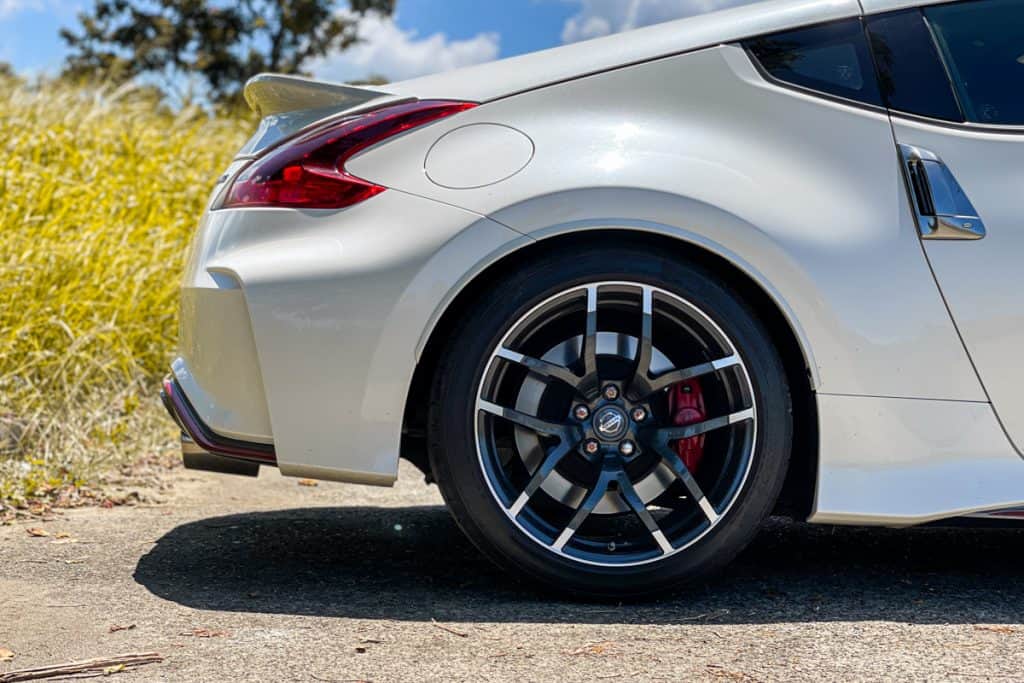
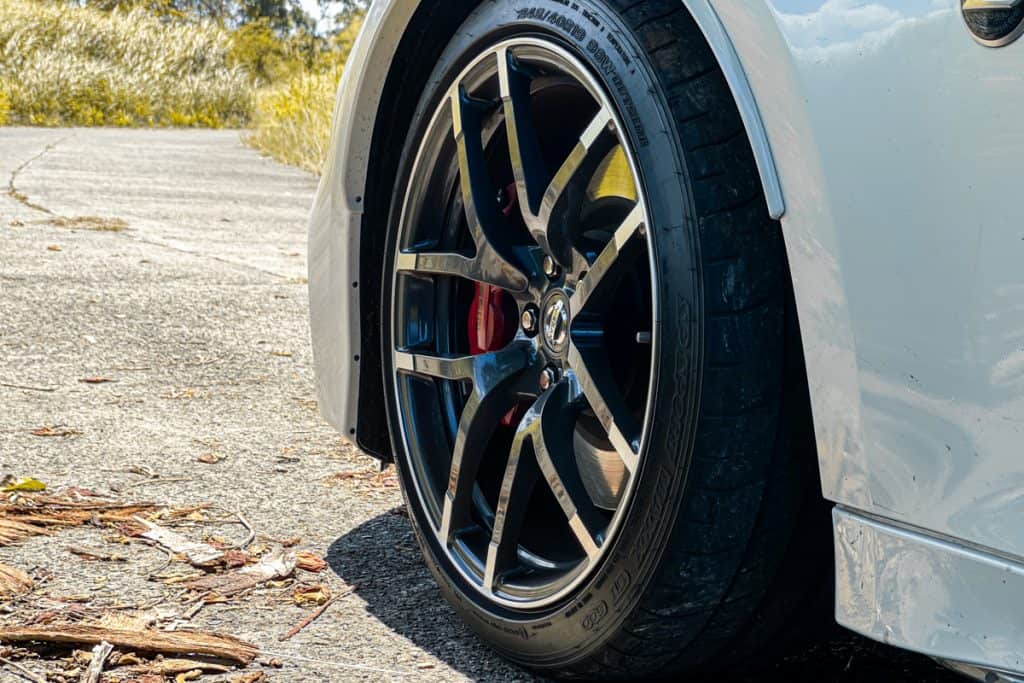
Whatever the case, I like the 370Z’s looks and its bevy of Nismo visual accents found all over the vehicle (clue: they’re in red). But my most favorite would be the ducktail spoiler that somehow evokes a Porsche 911 vibe, along with the massive exhaust tips and the 19-inch Rays forged alloy wheels. Nice.
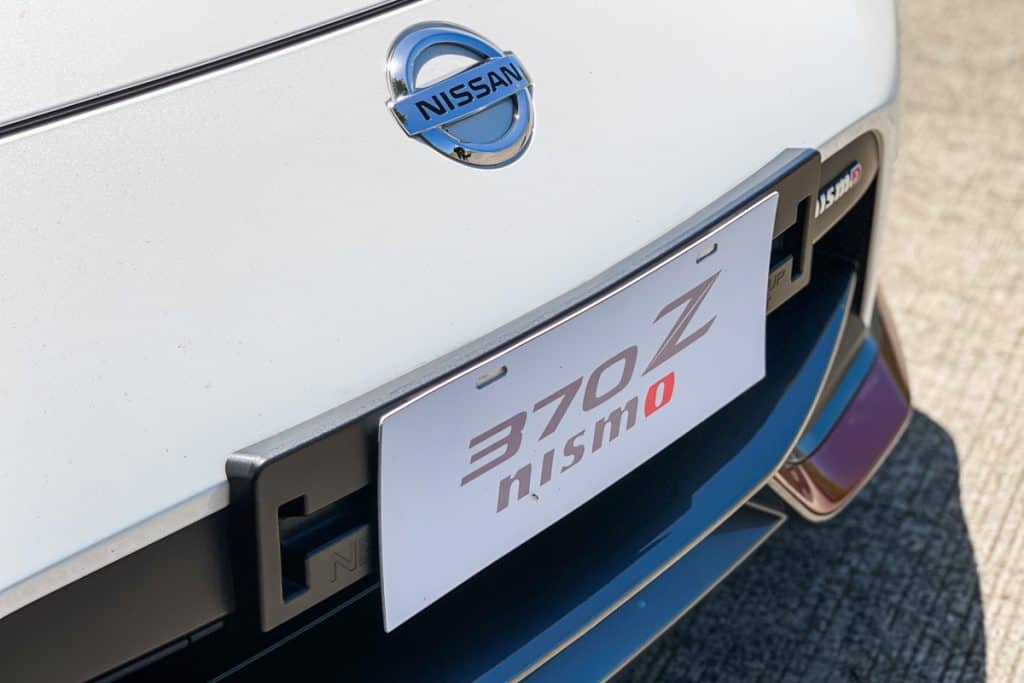
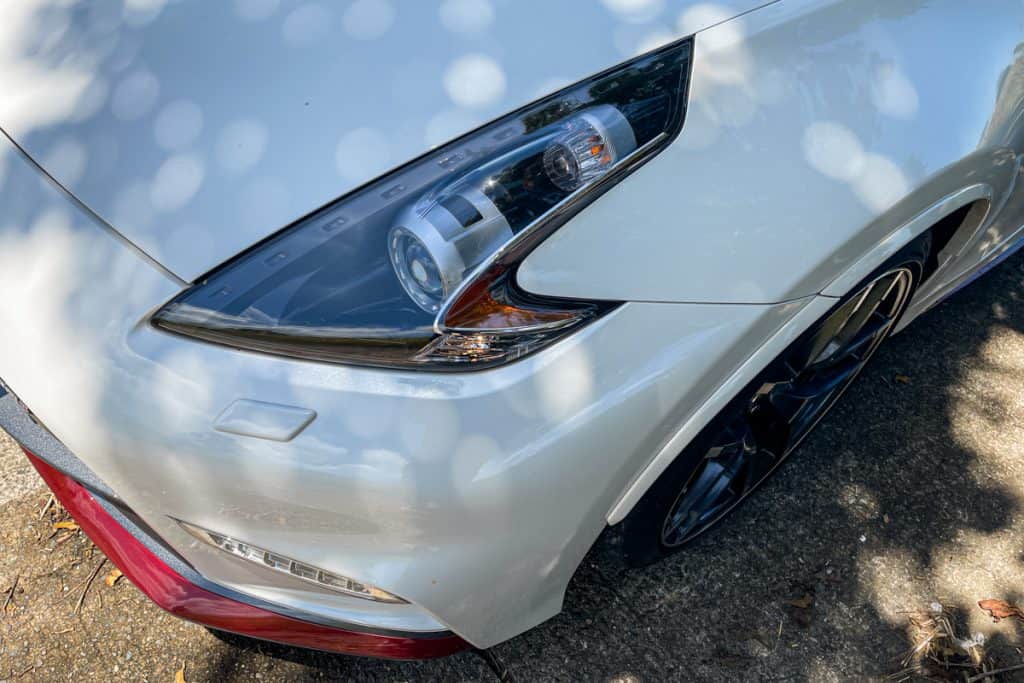
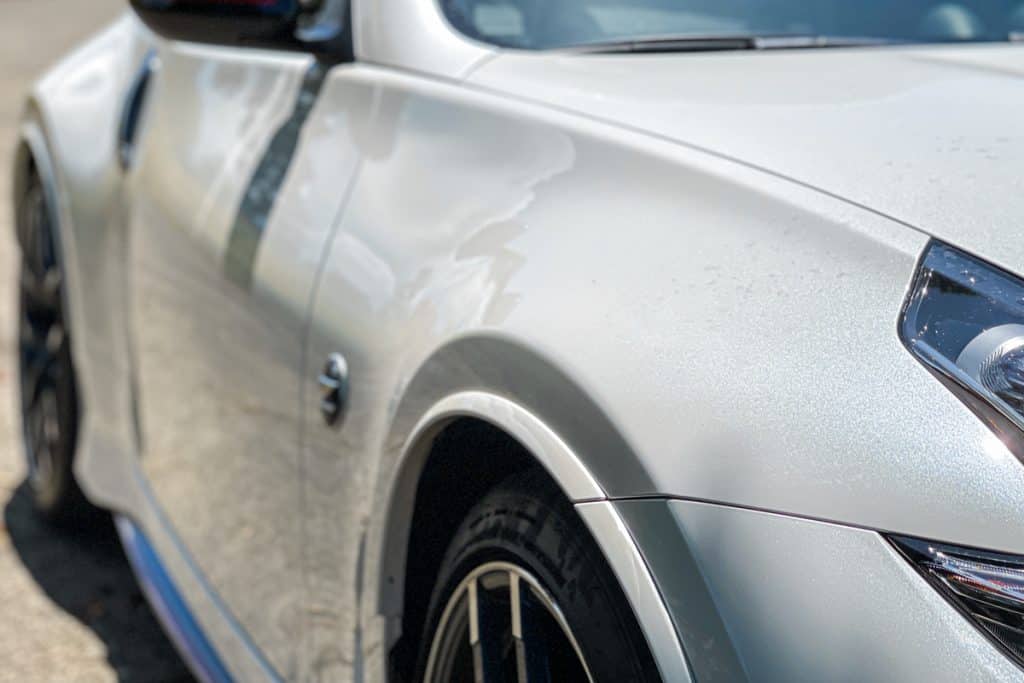
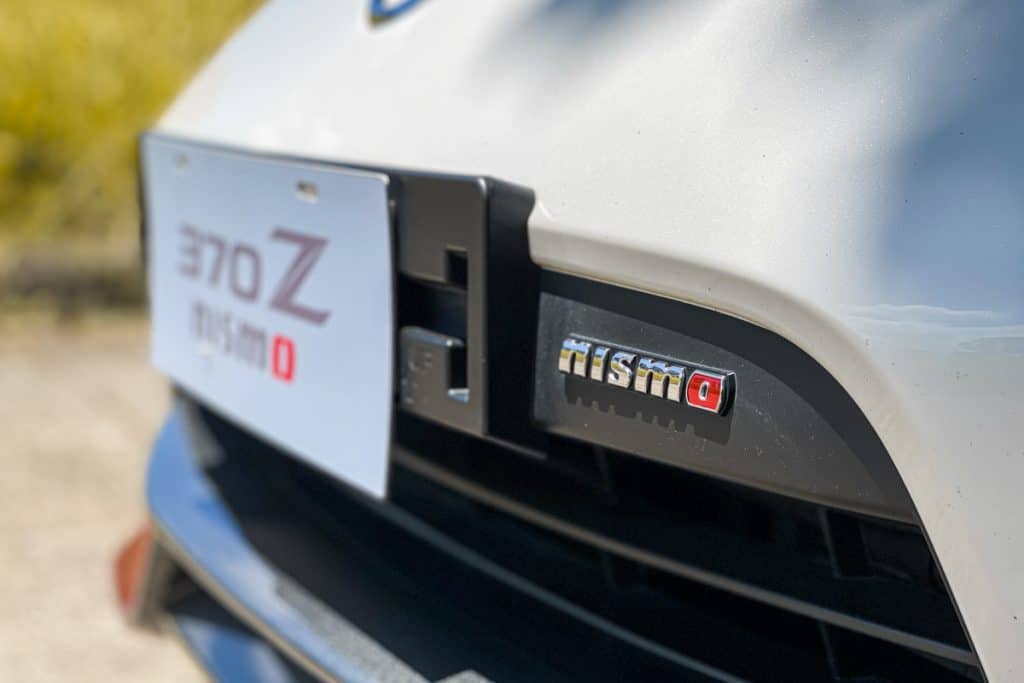
Viewed from the front, the 370Z veers away from the V-Motion grille execution in other Nissans of late – and that’s a good thing. It stays true to its heritage this way, though I can’t say the same for the boomerang-shaped HID headlights and taillights that started with the previous 350Z.
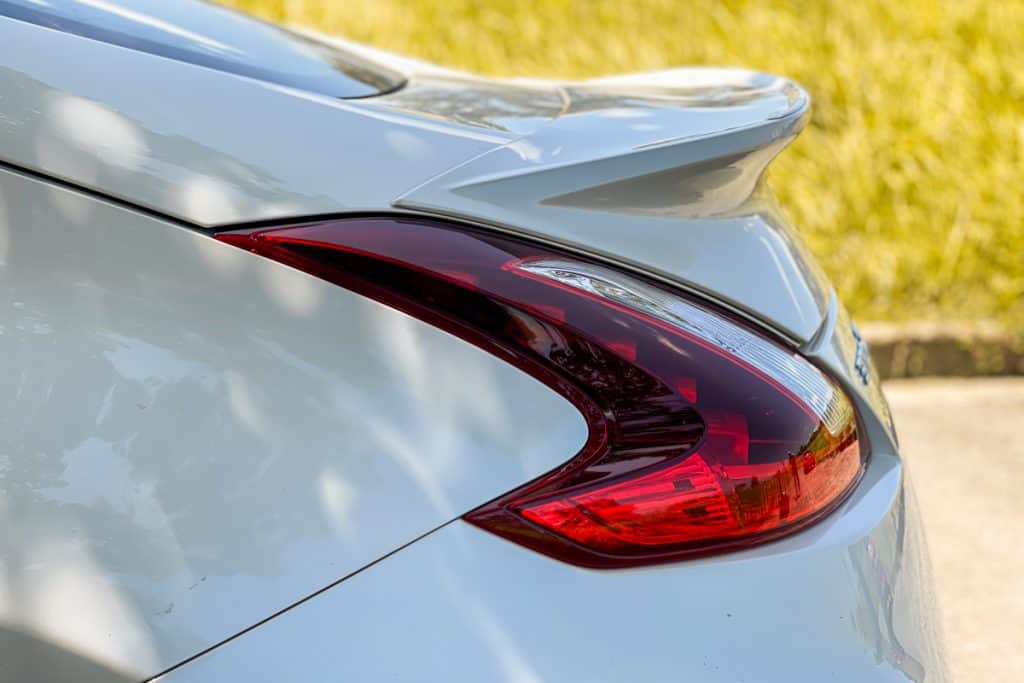
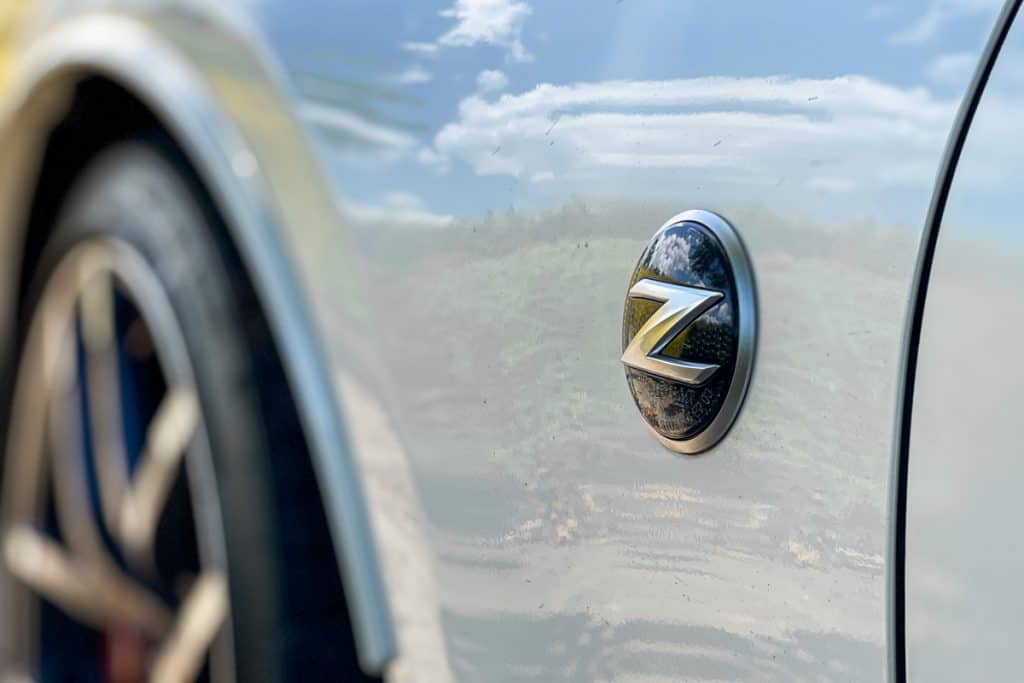
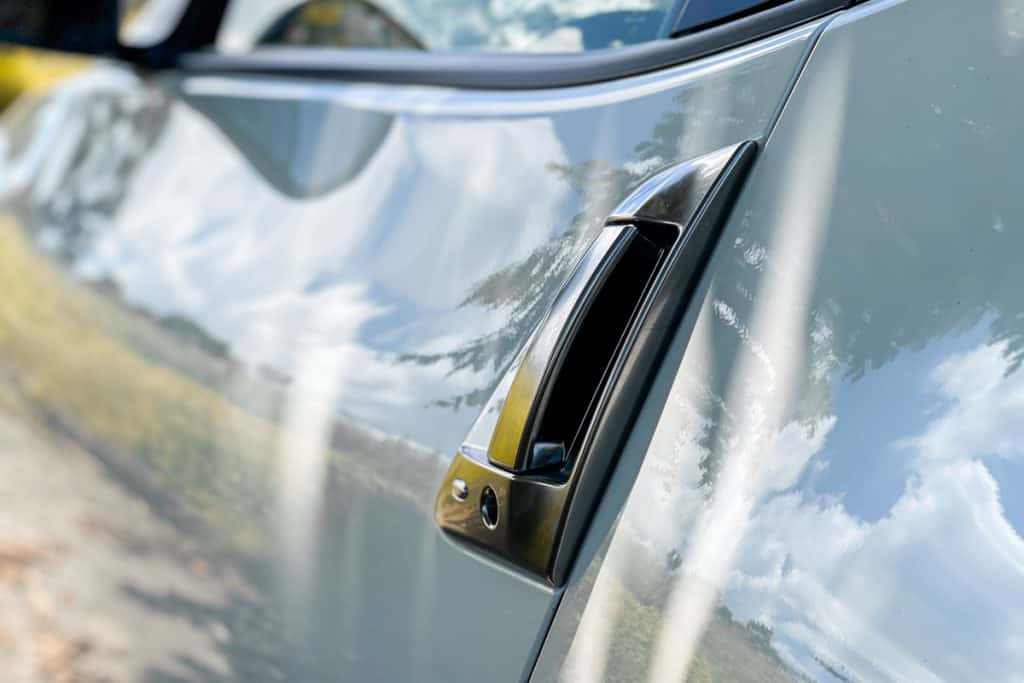
Fun fact: do you remember the Juke? That small crossover is actually designed after the 370Z, which you can see on the shape of the lights and some cabin appointments. Maybe that’s why I’ve grown fond of that quirky yet polarizing crossover, but I digress.
Interior
Speaking of the cabin, this is where the 370Z’s age shows despite the Nismo appointments, but that’s not exactly a bad thing. You get analog gauges plus semi-digital, orange backlit displays – not saying that they matter but they’re quite surprising in 2021.
You can tell that the 370Z’s cabin layout was designed without touchscreen infotainment in mind – the crown of the dashboard is a covered compartment that can hardly accommodate today’s smartphones, which also tells us that this was made with smaller phones in mind.
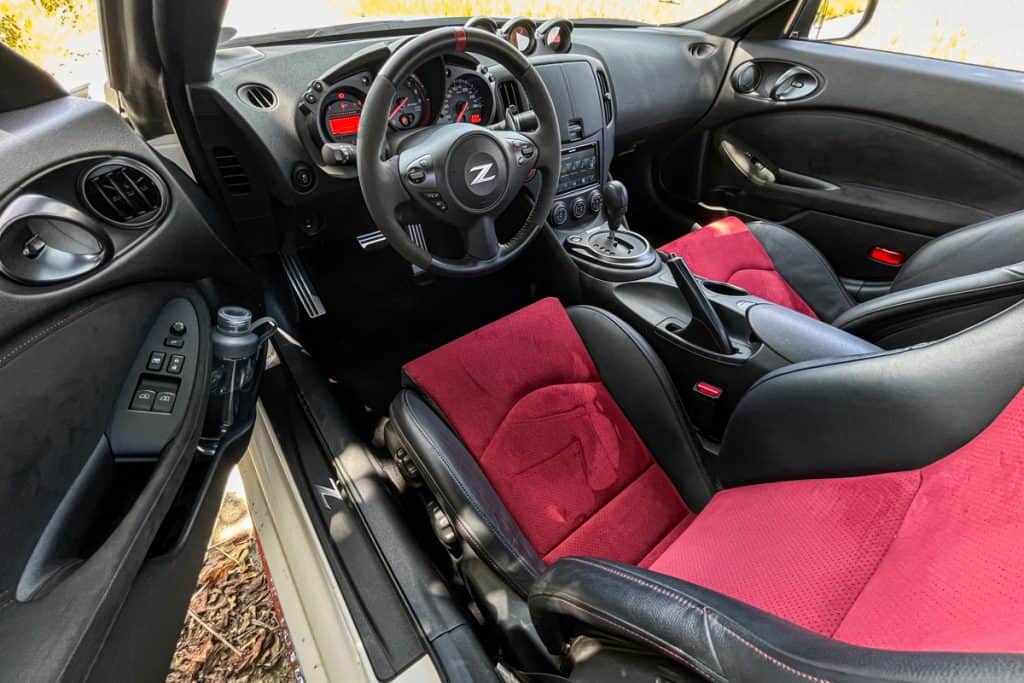
Case in point: my iPhone 12 Pro Max barely fits the space, so you might want to settle to using the extra storage for your wallet and/or your RFID cards.
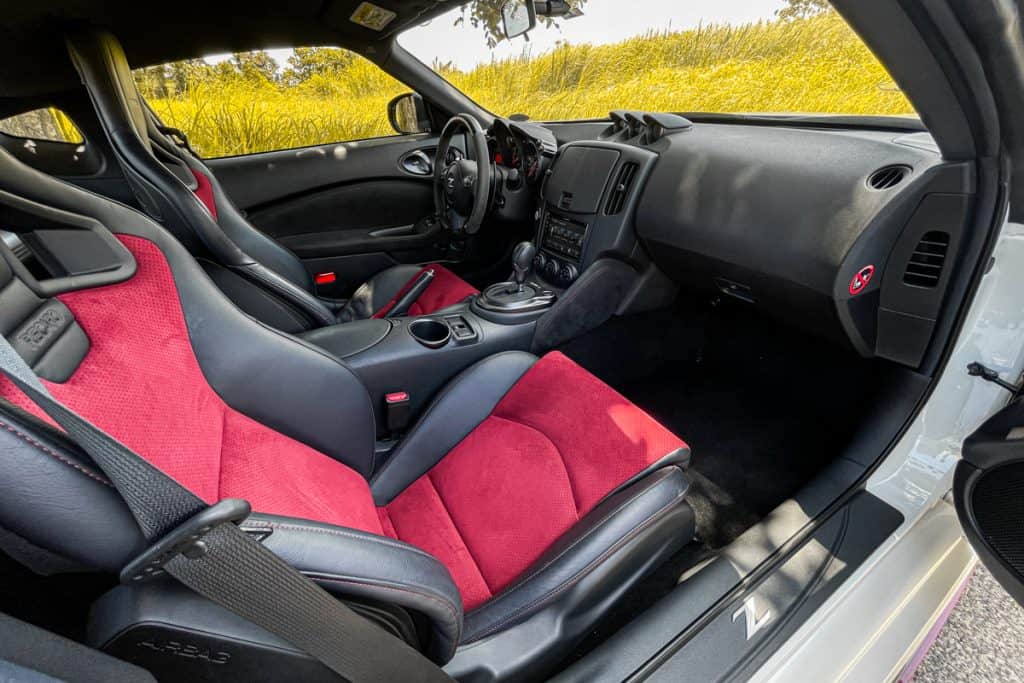
Beyond that quirk, we can’t deny that Nissan is pretty generous in adding Alcantara on usual cabin touchpoints, most importantly on the steering wheel that’s so nice to fiddle with. The red accents obviously give out a sporty vibe, but the sportiest of the bunch are the Recaro bucket seats with Nismo badging and Alcantara inserts. Granted, they’re not the most comfortable seats on the planet (with unfortunate manual knob adjusters) but the whole setup serves an important purpose – to keep your butts in place when driven at the track or when taking winding roads at speeds. I just wish that Nissan also added a telescopic steering adjustment for more flexibility in seating.
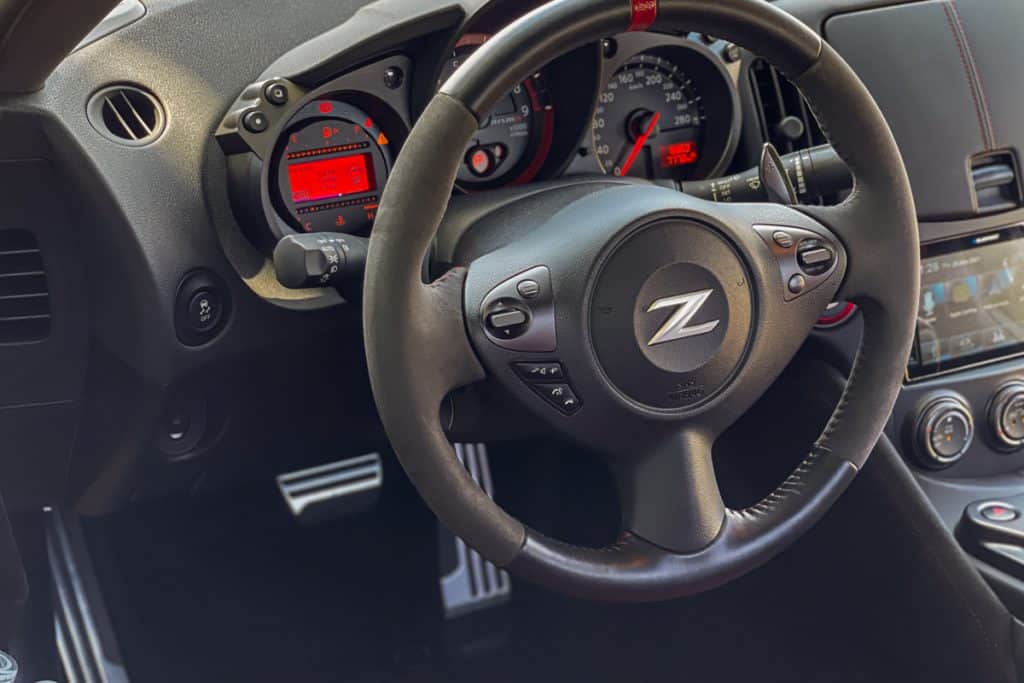
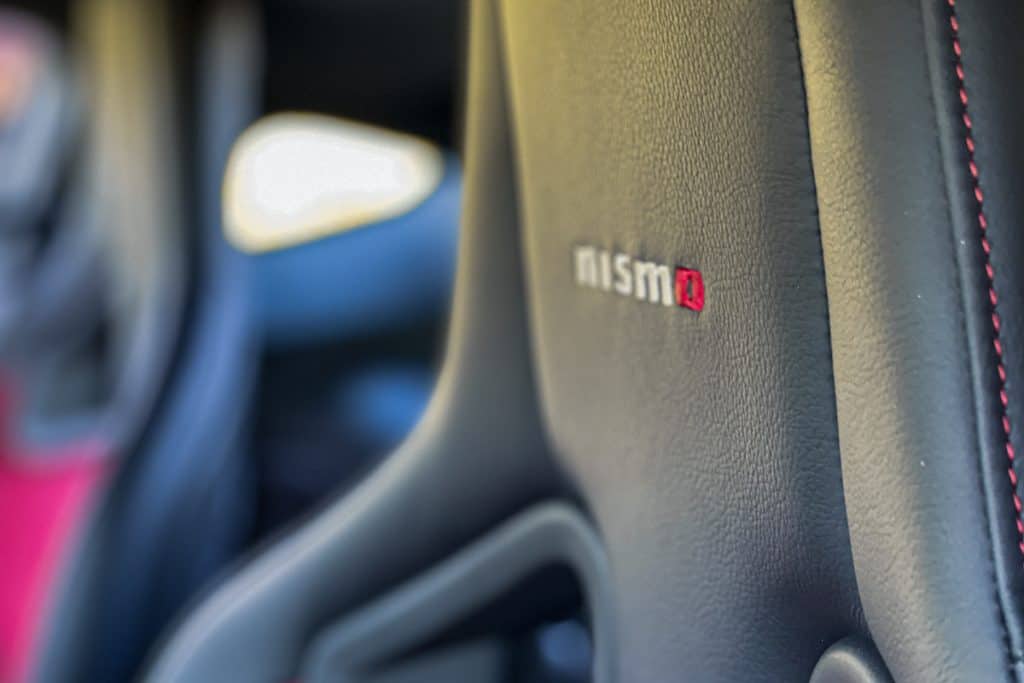
There are storage spaces behind the Recaros, but that’s limited for you and/or your passenger’s bags, maybe even for face shields and other pandemic essentials.
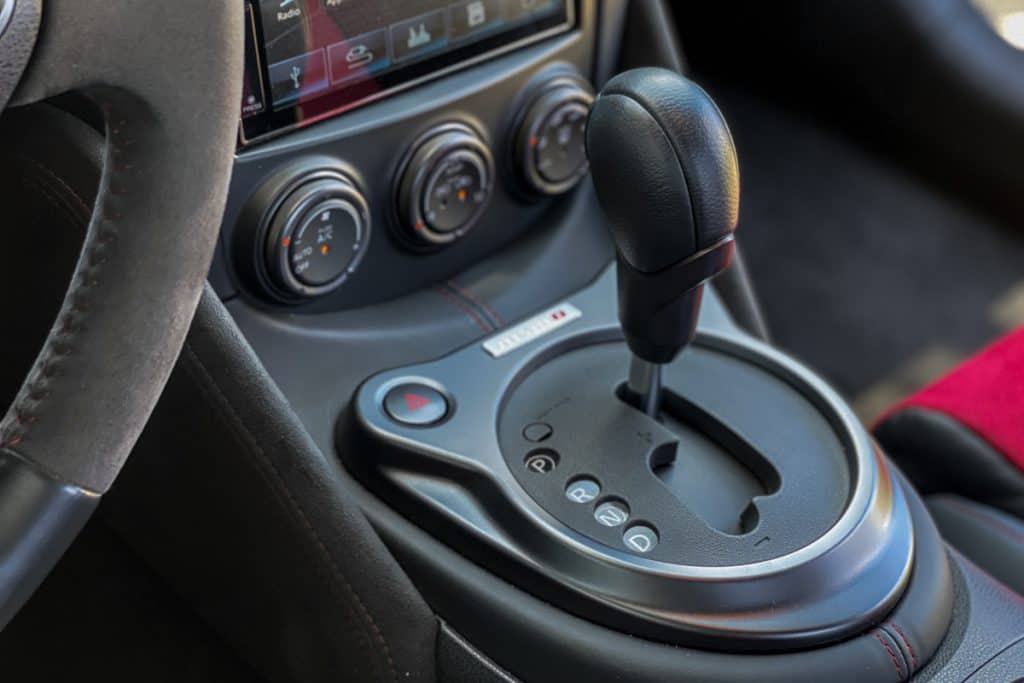
As expected, there’s not much room at the trunk, which is a hatch, by the way. Okay, you may be able to fit a week’s worth of grocery items, maybe even a piece of small luggage if you retract the tonneau, but anything taller would be an adjustment. That’s your trade-off for a full-size spare and a Bose subwoofer lodged in the cargo area.
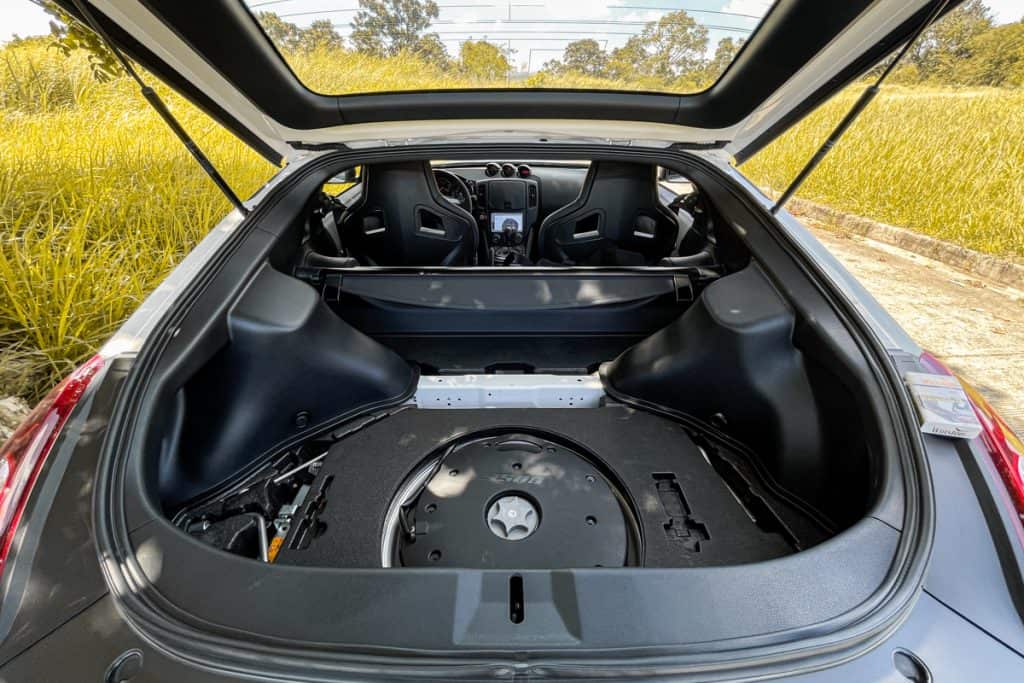
Tech & Safety
We’ve established that the 370Z’s cabin isn’t actually designed in the age of touchscreen, but at least Nissan Philippines tried to keep with the times with a dealer option Blaupunkt infotainment with Apple CarPlay and Android Auto. As an aftermarket option, though, don’t expect seamless integration with the whole 370Z cabin ecosystem – such as the USB port for smartphone pairing located on the head unit instead of the one inside the center console compartment – but the effort’s notable.
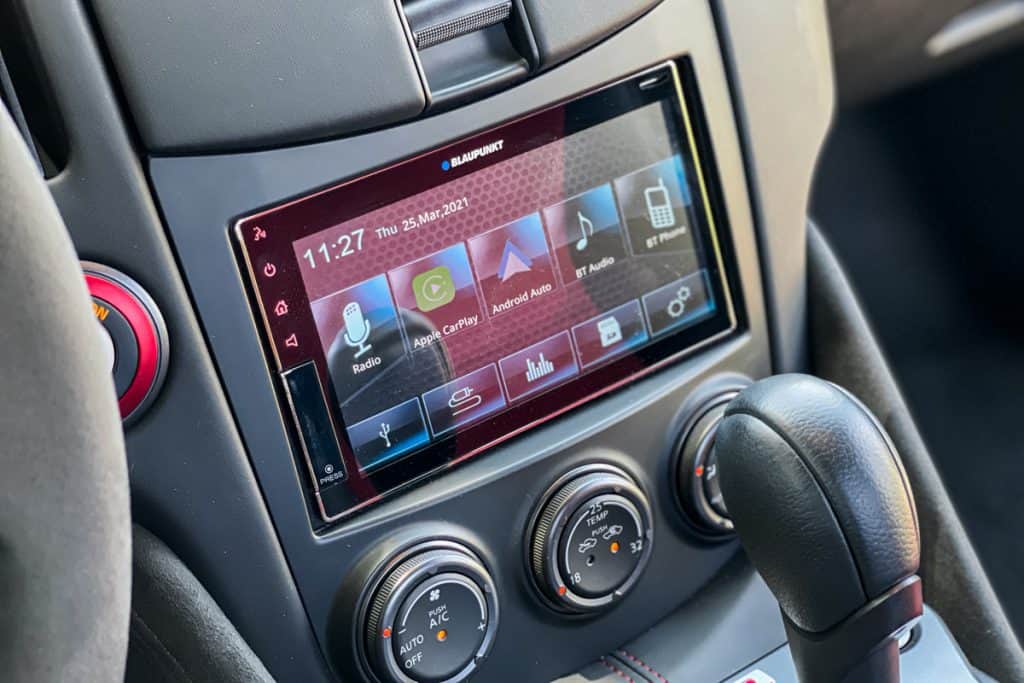
The 370Z Nismo also doesn’t have speed-sensing door locks, as well as rear parking sensors, reverse cameras, and a dedicated display for cruise control (you won’t know if cruise control has already been engaged).
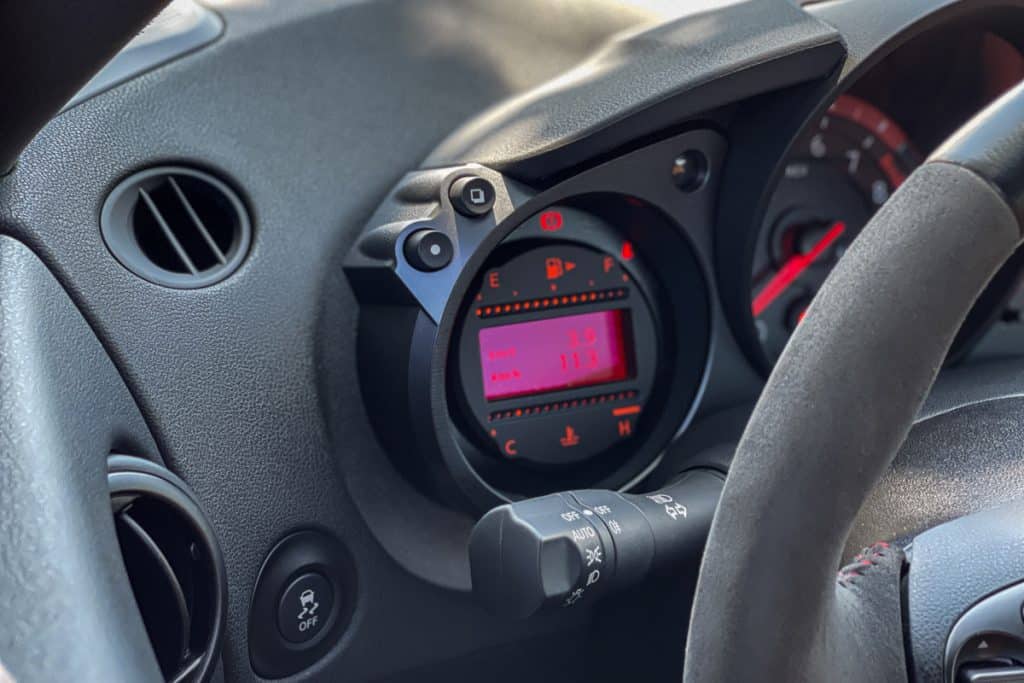
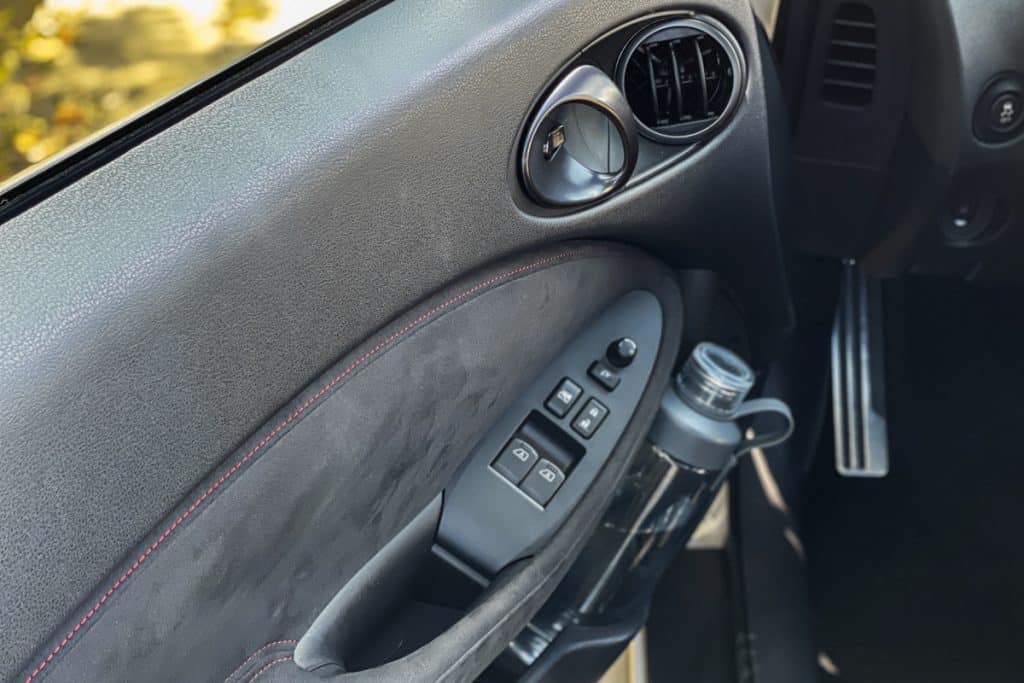
Then again, at least you have a great-sounding 8-speaker Bose audio system, partnered with safety features such as four airbags, traction control, Vehicle Dynamic Control, and ABS with Brake Assist.
Performance
Ever since its introduction at the tail end of the ‘60s, the Nissan Z car has the same formula: engine in the front, power sent to the rear wheels, and a 6-cylinder engine residing under the hood.
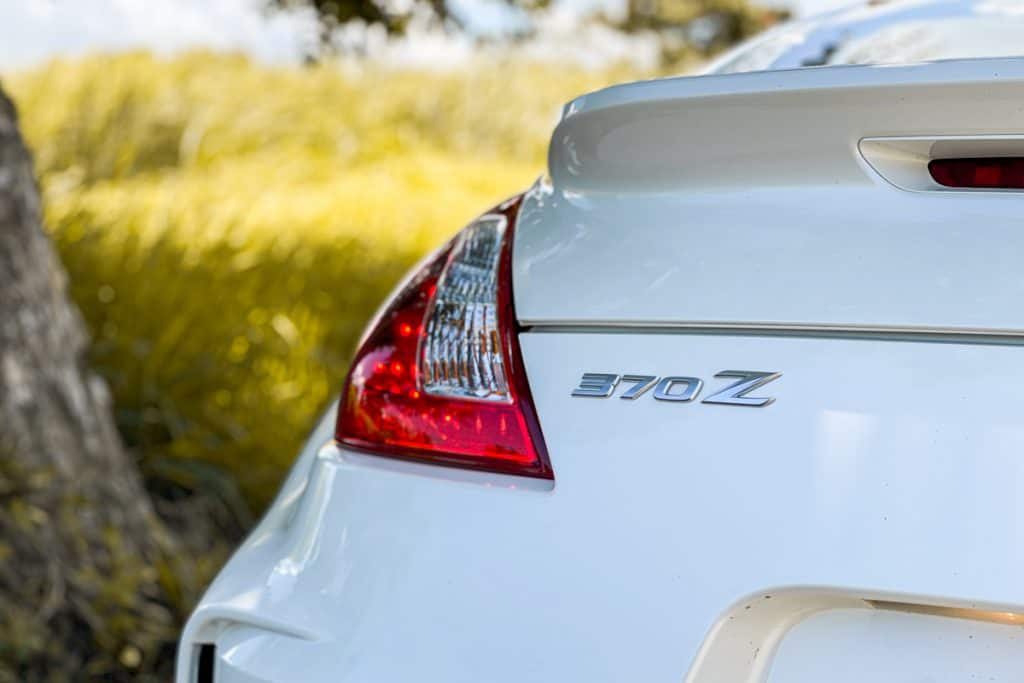
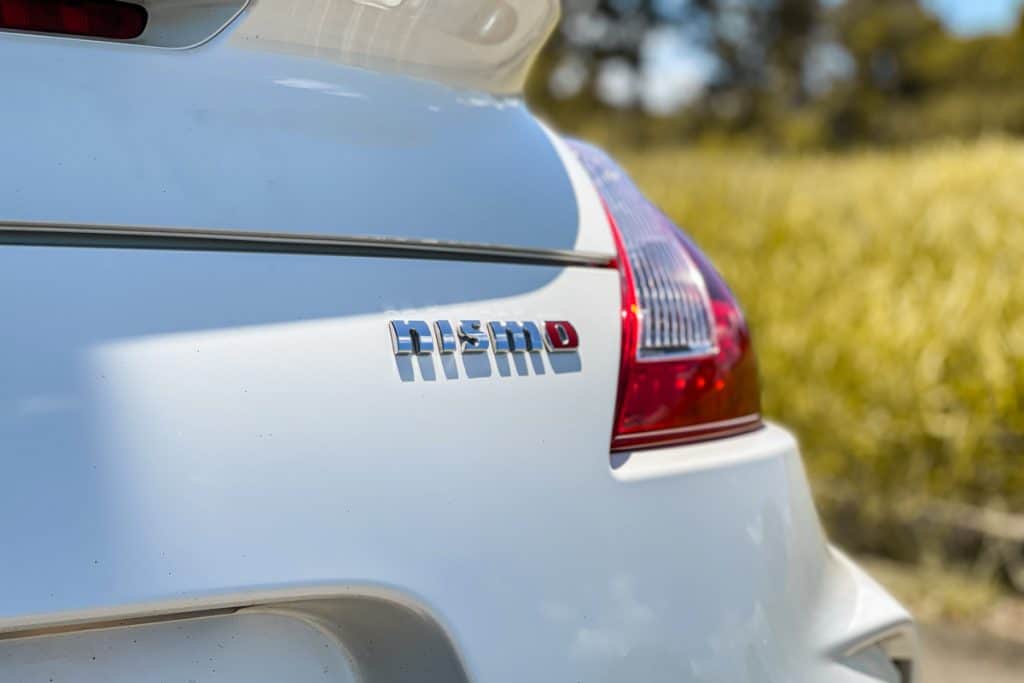
This version, the 370Z, is powered by a naturally aspirated 3.7-liter VQ37 gasoline V6 engine, tuned to churn out 344 metric horses and 371 Nm of pull in the Nismo version that I tested. And yes, if you’ve noticed, the naming convention of the Z cars depends on the engine displacement – a tradition that started with the Datsun 240Z and might end with the upcoming, next-generation 400Z.
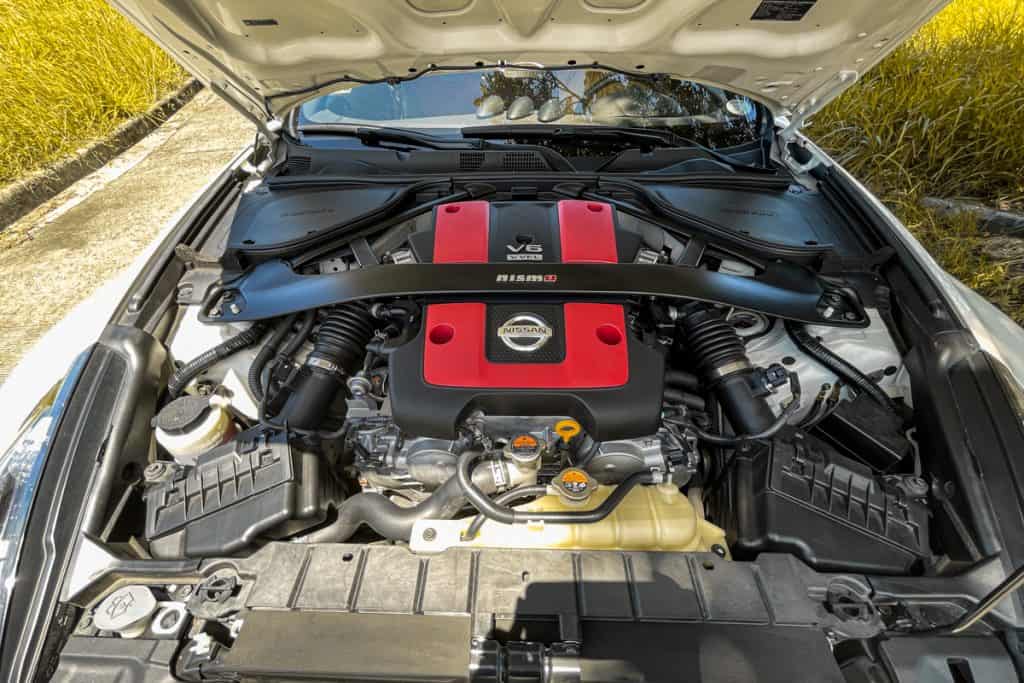
Semantics aside, though, the non-existent forced induction employed a certain level of honesty, felt when driving the Z car both in the city and on the track (or a closed private course). Power delivery was direct, though I wish the 7-speed automatic transmission shifted more promptly when left to shift by itself. Through the paddle shifters, however, it was a different story – one that’s full of 95 octane-filled fun and excitement.
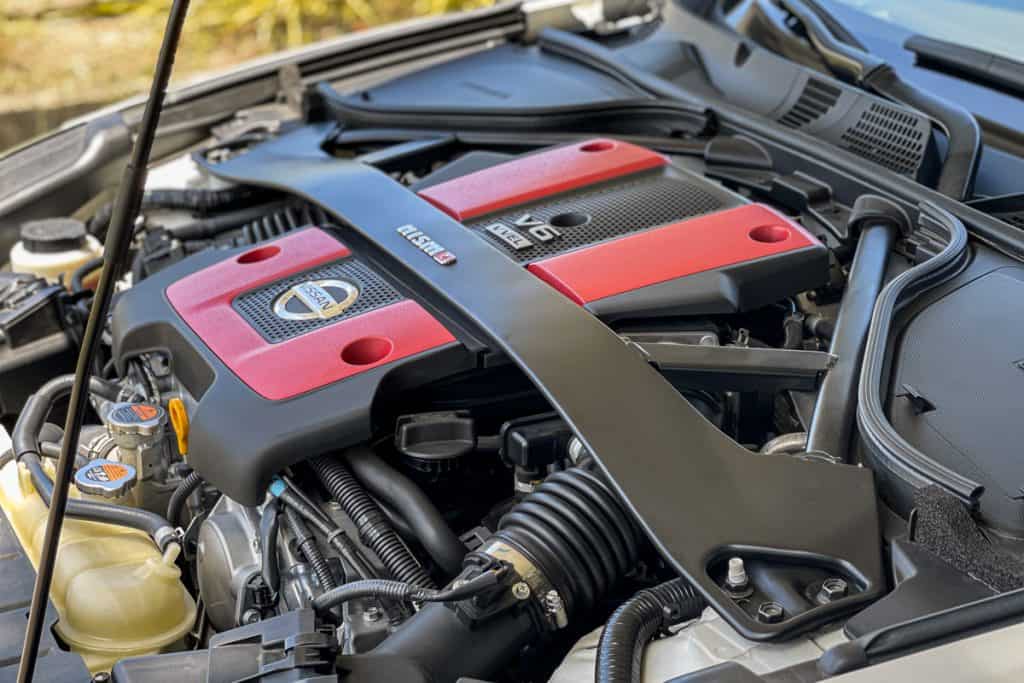
Handling was as direct and sharp as I wanted from a sports car, with the dated hydraulic steering system working as non-dampened assistance when taking corners. It inspired stability and confidence, though it wasn’t too appreciated when making three-point turns. Forward visibility’s good, but rear visibility’s hampered by the narrow backlight opening, highlighted by the lack of parking sensors and a camera.
As a Nismo model, the upgrades on the suspension and body rigidity compromised ride quality – something that I expected from a track-ready coupe. For long drives, the tough suspension setup made me want to rest for a bit along the way, as are the lackluster insulation that let unwanted outside noise and harshness into the cabin even at tamed speeds. I appreciated that at times, though, since it lets you bathe in the glory of V6 exhaust note as you drive. Talk about a blissful auditory experience.
But overall, the 370Z’s ride quality makes the Avanza a luxury cruiser by comparison. But then again, that MPV can’t sprint from 0-100 km/h in 5.2 seconds, can it?
Verdict
The truth is, with the next-generation so-called Nissan 400Z on the horizon, and the fact that the 370Z Nismo costs an eye-watering P3,888,000, going for the current Z car at this day and age is quite a conundrum.
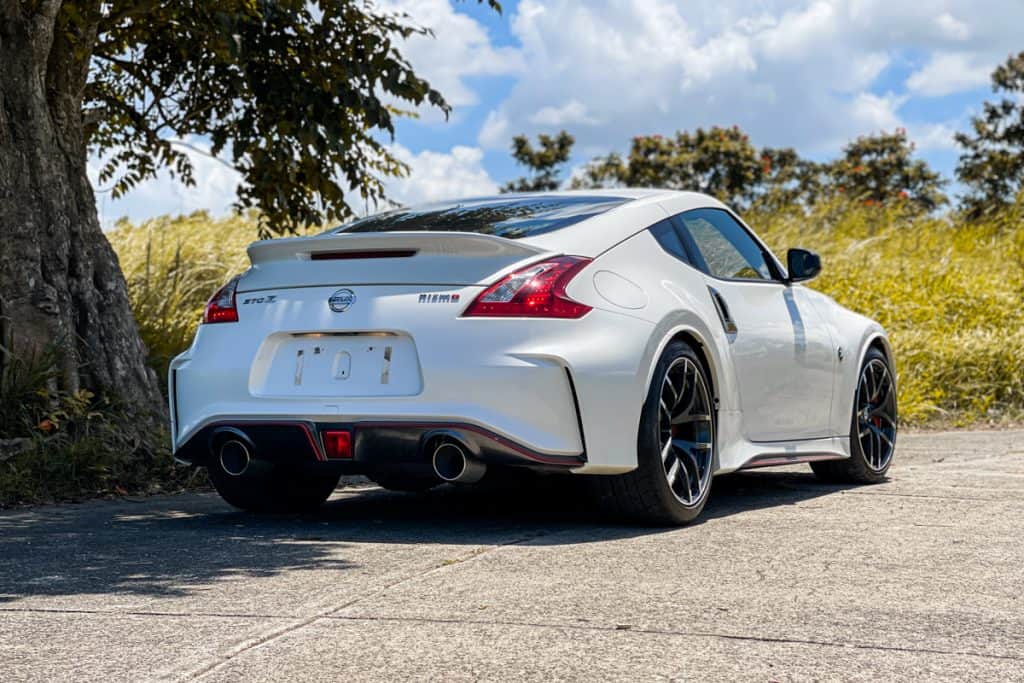
But with the honesty from the decade-old platform that I’ve felt during the tests, I wouldn’t blame anyone who chooses to buy one today. Besides, the next Z car that’s about to hit global daylight soon will take a good five years or so before arriving here.
If you couldn’t wait that long to do something about your Z car itch (and if you hate turbos), then the 370Z Nismo, no matter how old its platform is, is still a must-have.

